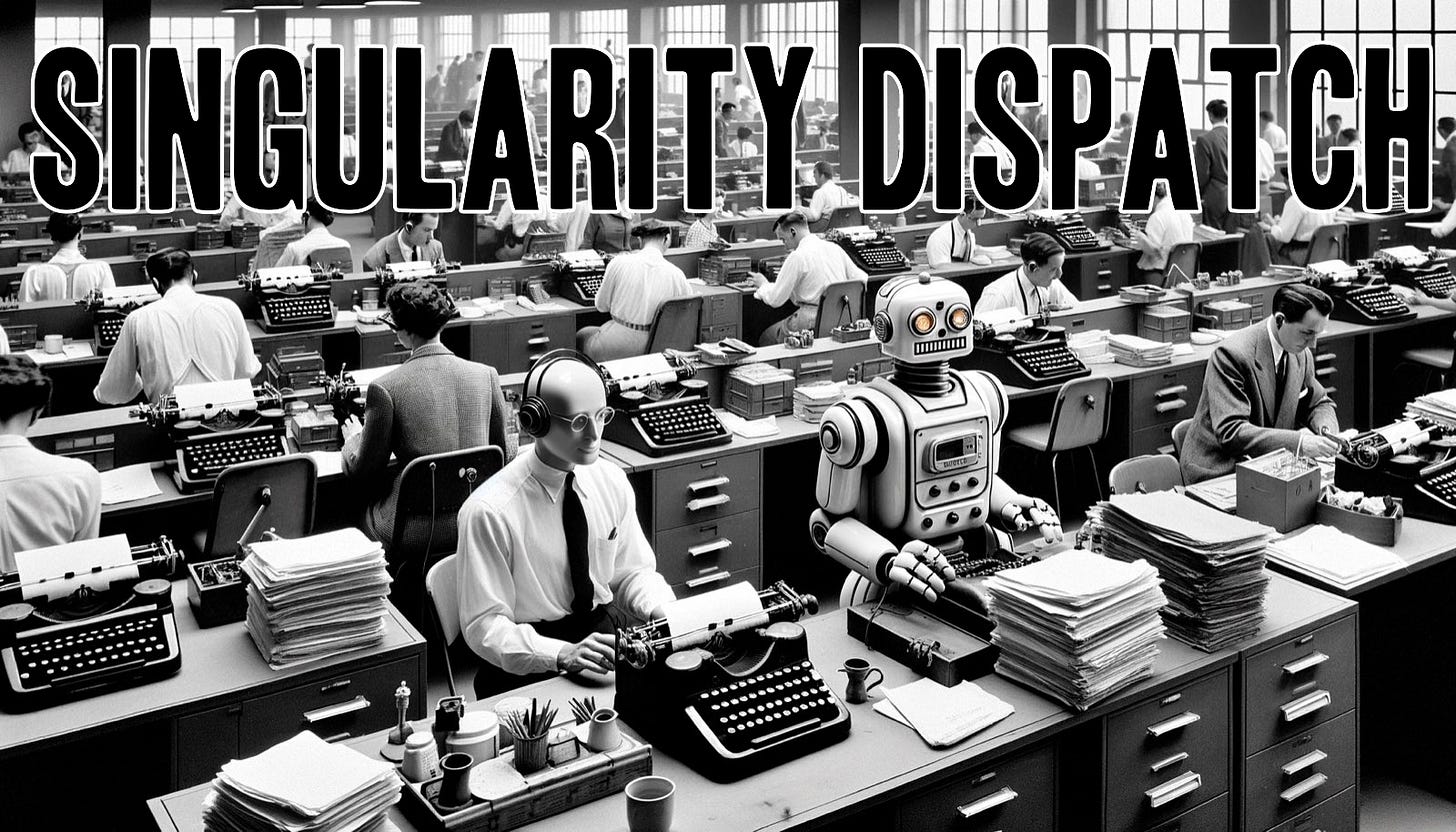Vol. 1, No. 1 — The future is going to be extremely weird and will arrive way before we’re ready for it.
This being the opening line of a new set of columns, I wanted to punch it up a bit with some slick synonyms. For “weird” you find things like “unnatural” and “eerie.” You could also pick “spooky” or “uncanny” but I don’t think they’re accurate. It’s just going to be really really weird.
Example from the present: it’s probably weird to someone born in the late 20th century (umm…1982) how we listen to music now. Back in the day, the most direct route to hear your favorite song might be to call Magic 93 and convince John Ford to play it or hope Mr. Kasem already had it on his countdown. If you were really on top of your game, you’d then stand by and hover over the play/rec buttons on your boombox to save a copy for yourself.
Not even 150 years before that the ability to record sound hadn’t been invented. Period. Let alone have that technology available to everyone at a reasonable price. Listen to the music live, make it yourself, or nothing.
Now what can we do? In mid-breakfast-mouthful, we can grunt out a song name, and a speaker in our room will play it in spectacular fidelity. Any song you can think of. Nearly the entirety of all music, ever, as fast as you can say “Hey, ding-dong, play The Safety Dance.” That’s weird!
No? Not weird for you? You’re young and hip? How about if you didn’t have to name the song? What if you could just hum it silently to yourself and your stereo would jump in? Or while brushing your teeth say “Hey, ding-dong, play that song I heard in my dream last night.”
You may be wondering about the title: Singularity Dispatch. The Technological Singularity is an oft-debated idea in computer science and science fiction. There are several versions and interpretations out there but basically, it boils down to what happens when our technology becomes so advanced that we’re not able to comprehend it? And by “we” I don’t mean the users or even the inventors. What happens when we, as a species, become completely outpaced by our own creations? What happens when our technology is capable of improving its own design?
To me, this hypothetical “intelligence explosion” event feels like “the internet” did in the mid-’90s. Back then, I was a teenager pouring over a book by Bill Gates called “The Road Ahead.” It attempted to explain various technological advances in relatable ways. What is digital vs binary? What can using e-mail change for us? Is it better than a fax? What is online shopping? These things were not clear at the time. It was all brand new.
My aim with this series of columns is to do the same for our freaky, inevitable future. How good is Artificial Intelligence (AI) getting? Which jobs may or may not be going away? How many of all these “advances” are truly game-changing and how many are snake oil? (The media plays pretty fast and loose with “AI Armageddon” headlines.) And what external factors are we missing? Remember the recent (and continued) global chip shortage? It's pretty hard for the disembodied AI voices to take over the world if their silly human day laborers can’t make enough chips or generate enough electricity to keep their brains on.
Also, why does this all seem to be happening so suddenly? An unrelated set of technological improvements has come together in serendipitous ways resulting in a drastic adjustment of timescales. Estimates for certain capabilities have been shortened by decades and then shortened again. We’re already doing things with AI, robotics, energy production, and space travel which were considered pure science fiction a mere 20 years ago.
It’s not the first time this has happened. In 1903, the New York Times wrote “the flying machine might be evolved…in one million to ten million years.” Less than three months later, the Wright Brothers had their first manned flight. In 1910, the opinion was that flight would remain only for the rich and never be faster than a train or car. By the 1930s, commercial airlines with hundreds of thousands of passengers were up and running. Then we orbited the Earth in 1961, landed on the moon in 1969, and three years later it became so mundane that people stopped tuning in to watch it happen.
It goes without saying, I’m no Bill Gates. But I will attempt to bring this high-flying techno hype train back down to Earth. One prediction for the singularity places it before 2045, let’s see how far along that road we are. If not for you, then for me. I mean, how else will I know when to expect my jetpack and flying car? The Jetsons promised us those, you know. Long, long ago!
So what is my first topic? I briefly mentioned what sounds like telepathy a few paragraphs back. That’s what we’re going to look at next week: How close are we to actually reading someone’s mind? And since we’re likely using a computer to help us read that person’s mind: how long until they can do it on their own?

